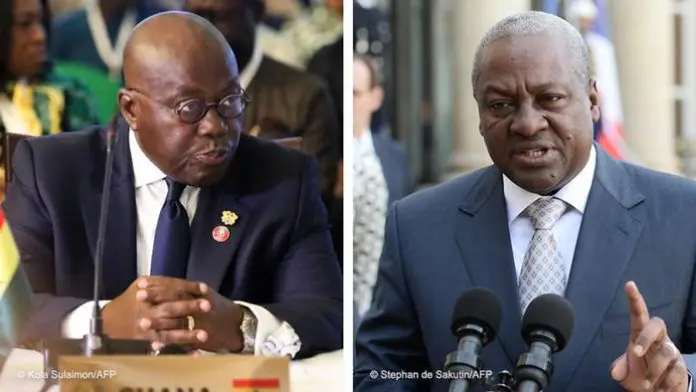Ghana’s political stability to endure despite highly acrimonious political landscape – EIU
“A razor-thin NPP-led working majority in parliament (with 138 out of 275 seats) implies that achieving consensus on contentious reforms, including planned tax rises, will prove tumultuous. In November 2021 the minority government rejected the proposed 2022 budget bill over the introduction of an electronic-transaction levy (e-levy); this was later reversed, and the 2022 budget bill was passed by an NPP-led majority, albeit without the e-levy clause
The Economist Intelligence Unit (EIU) has said its five-year forecast for Ghana released on April 13, 2022 that it expects Ghana’s underlying political stability to endure over the forecast period, despite a highly acrimonious party-political landscape.
The fierce rivalry between the two major parties—the ruling New Patriotic Party (NPP) and the opposition National Democratic Congress (NDC, the EIU said, will remain the core feature of the political scene.
“A razor-thin NPP-led working majority in parliament (with 138 out of 275 seats) implies that achieving consensus on contentious reforms, including planned tax rises, will prove tumultuous. In November 2021 the minority government rejected the proposed 2022 budget bill over the introduction of an electronic-transaction levy (e-levy); this was later reversed, and the 2022 budget bill was passed by an NPP-led majority, albeit without the e-levy clause.
“Similar issues with achieving consensus on major legislation will slow policymaking and test the government’s strength throughout the remainder of its term (until 2024). We expect a transfer of power to the NDC in the 2024 elections, driven by anti-incumbency factors and public dissatisfaction with the current government.
“However, irrespective of who retains power, we expect policy continuity in the medium term, with a focus on improving food security, industrialisation and economic diversification. The new government will face similar challenges to its predecessor, but overall political stability will prevail,” the report said.
It further indicated that public discontent with the government stems from factors such as rising prices (stoked further by the Russia-Ukraine war), unfavourable public-sector working conditions, limited economic opportunities for young people—exacerbated in part by the socioeconomic fallout from the coronavirus—and perceptions of corruption.
“This will continue to fuel sporadic unrest, which will be mostly non-violent and concentrated in urban centres, in 2022-26,” the report indicated, adding that “This is illustrated by a seven week strike that was launched on January 10th 2022 by the University Teachers Association of Ghana, over dissatisfaction with the existing salary structure for lecturers.
“We expect the state controlled security forces to remain able to contain anti-government demonstrations and do not expect overall stability to be compromised.”
Source: 3news.com|Ghana


